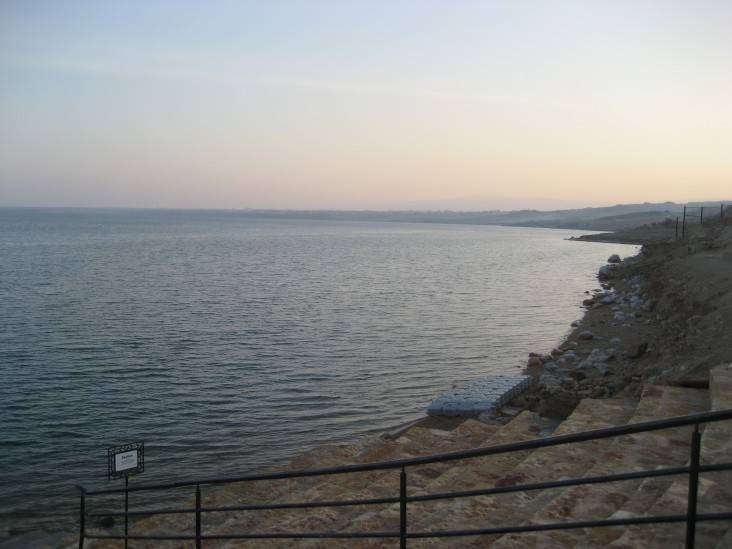
Red Sea - Dead Sea Conduit: A joint Jordanian-Palestinian-Israeli team ran a study on the environmental impacts of a proposed water conduit between the Red and Dead Seas. They produced recommendations that were incorporated into the World Bank’s documentation, which will guide future decisions on the project. Government officials, researchers and journalists gathered to hear the research findings and discuss the ramifications of the proposed conduit. The project brought together non-governmental organizations (NGOs) and government partners working together. As a result, the lead NGO partner on this project has expanded its efforts to include Arab-Israeli community-level environmental protection and advocacy projects.
Salinity in the Jordan River: Two MERC-funded joint Israeli-Jordanian-Palestinian studies on water quality along the Jordan River completely changed the understanding of the source of salts in the river. The results showed that the river is impacted both by saline groundwater and sewage effluents. These studies concluded that properly treated wastewater could have a positive impact on the health of the river.
Regional Air Pollution Studies: A project studying the impacts of urbanization on air quality in Israel and Jordan and the circulation of pollutants in the region has provided policy makers with conclusive evidence that sudden increases in air pollution are regional rather than local. These results have significant implications for developing policy approaches necessary to effectively improve air quality.
Earthquake Hazards: Israeli and Jordanian scientists are working together to accurately map the fault lines in the land and marine regions of the Gulf of Aqaba. This area is developing rapidly, especially on the Jordanian side of the border. The researchers are compiling data to help the Jordanian government and developers avoid earthquake hazards by creating appropriate building codes.
Artificial Coral Reefs: In response to coral reef damage in the Gulf of Aqaba, Israeli and Jordanian researchers developed and installed an artificial coral reef in the Red Sea near Eilat, Israel. After a few weeks, marine life began to colonize the structure and the artificial reef also drew divers away from more sensitive marine areas. A second reef installed on the Jordanian side of the Gulf incorporated further design improvements and provided more information on the biodiversity and slightly differing conditions on the Jordanian side near the border of Saudi Arabia.
Biodiversity and Species Discovery: A joint project between Jordanian and Israeli researchers studied the effects of land development on biodiversity. In the process, they trained several Jordanian master’s degree students and discovered many new insect species and at least five new spider species.







Comment
Make a general inquiry or suggest an improvement.